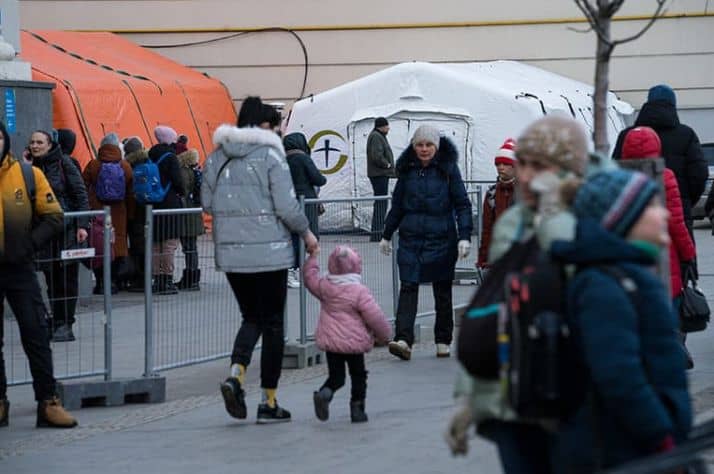Ontario's Kim Wiebe will be flying off to eastern Europe, for a second time. at the end of May as part of an effort to help displaced Ukrainians in western Ukraine.
By Don Mitchell
An ICU nurse from Haldimand County, Ont., who’s set to embark on her second stint to provide medical relief in war torn Ukraine, says her first experience was “an eye opening experience.”
Kim Wiebe will be jet setting to eastern Europe in a matter of days as part of an effort to aid displaced Ukrainians, serving them at an emergency field hospital in western Ukraine.
“I was posted at a train station clinic and besides the people who came in to see us, there were so many people fleeing,” Wiebe told 900 CHML’s Good Morning Hamilton.
“(They were) just tired, hadn’t slept in days, hungry, carrying all their belongings, moving from the trains, trying to get onto other trains to get out of the country, busses or looking for a place to stay.”
The St. Catharine’s nurse, who resides in Canfield, was set up at a medical stabilization point as part of a Samaritan’s Purse operation at the station where tens of thousands of people were passing through train gates daily in March.
Wiebe’s deployment in May involved providing medical aid to those in transit, moving through train stations to find a path to safety.
She says the people she saw had a wide variety of needs, aside from the burns and injuries one might anticipate from a nation under siege.
“Some of the main things that we saw were anxiety and high blood pressure,” Wiebe remarked.
“A lot of people in the conflict were not able to get their prescription medications, especially high blood pressure medication, so they would come into the clinic asking for a checkup.”
The United Nations refugee agency (UNHCR) estimates more than six million people — mostly women and children — have already fled Ukraine since the start of the conflict on Feb. 24, with neighbouring countries in eastern Europe opening their doors to welcome the displaced civilians.
Nurses and doctors from across Canada have been flying to eastern Europe since mid-March to provide preliminary care assistance for those who’ve crossed the border at checkopoints in Poland to avoid putting strain on the local health-care system.
Wiebe says she applied to join the humanitary response through her love of nursing and desire to take care of people who really need it.
Acceptance into the program called for a week of training in Calgary at the Samaritan’s Purse Canada headquarters, transitioning into a position with the disaster assistance response team (DART) – a large group of staff on call, should there be a disaster.
The effort was “tiring” with typically 12 hours of work a day with few days off, if any.
“I actually contracted COVID while I was there and (that) just kind of contributed to some tiredness on my part,” said Wiebe.
“Once I got home a week later, they called me for a debriefing and I said, ‘You know what? I’m ready to go back if you need me, I’m ready to go back.’”
The second deployment, for a week starting May 31, will see the Ontarian helping with scheduling and once again in a medical capacity helping outpatients coming through with urgent care or minor health issues.
“Then for some of them who need surgery, who need more care, I’m just helping work out referrals and passing them on to places where they can get that care,” Wiebe said.





